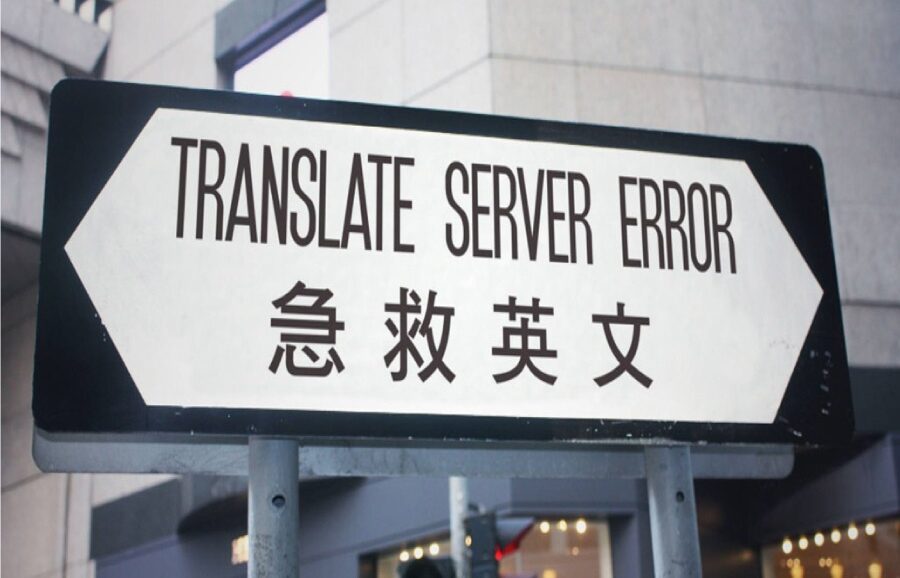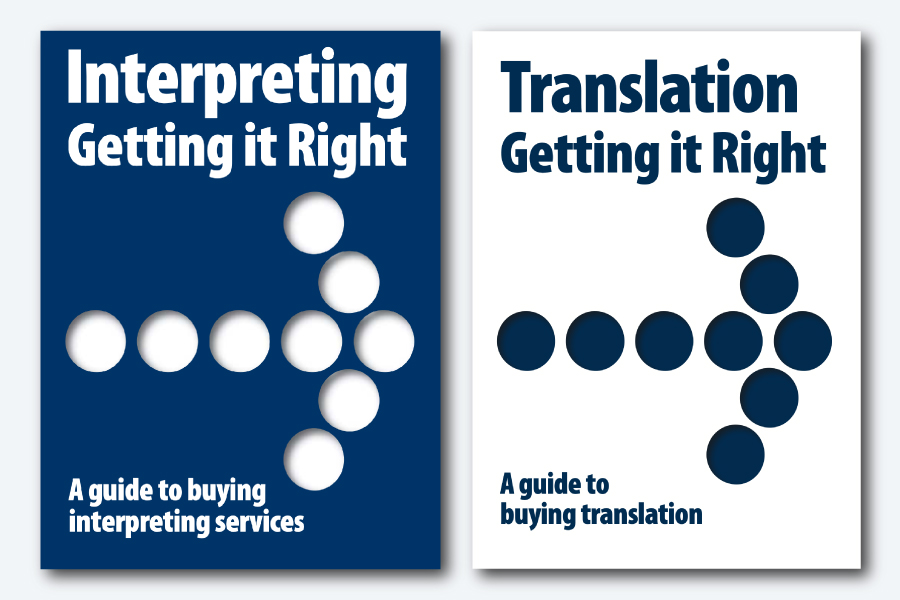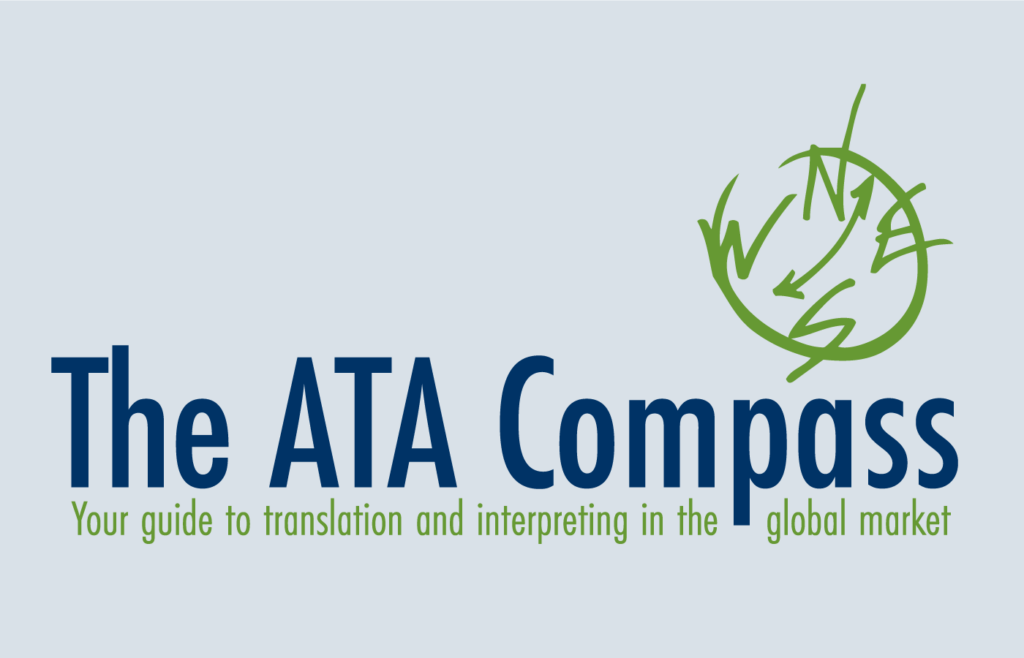How to choose a translation vendor: 9 tips to a successful experience
The thought of purchasing a new product or service can seem overwhelming at times. If one doesn’t know much about languages, there can be a sense of uncertainty at first about what dialect of a language is needed or how much is a good price for a translation project, but if you follow the steps to find a high-quality, professional agency, then the process can actually be quite smooth, and in no time, you’ll see that the process isn’t as cumbersome as it may seem.
Tip 1: Remember that translation is a service provided by professionals who should produce a professional (read: quality) product
Choosing someone who is bilingual to translate your documents is not enough! It
may seem like an easy solution to a language access need to simply call your co-worker’s cousin who “speaks fluent Spanish” to translate your company’s marketing brochure, but what are this individual’s qualifications? What level of education in the foreign language does s/he have? Does s/he have knowledge of industry-specific terminology?
Tip 2: Figure out your translation needs
First, figure out exactly what you need. Do you only need to have a brochure translated, or will you also need to have your company website translated in the future?
Who is the ideal reader of the brochure and/or website? What language does this group speak? What dialect? These are all important questions to ask yourself before looking for the perfect translation vendor for you.
Another point to consider is how flexible you need the translation vendor to be. Will you need the translation back tomorrow? In three days? Next week, next month? This is important information to give any vendor before starting a project. Make sure to set these terms beforehand so that you don’t have to wait two weeks for a translation that might have been done in three days.
Tip 3: Decide what kind of vendor might fit your needs
Is it important to you to choose a local vendor? Do you prefer to work with an
individual, a small business, a large corporation? No matter what your preferences, all of these options work a little differently, so consider this before you start the project.
Many clients choose local companies to handle translation jobs, as they feel a sense of comfort in knowing that they can meet with the owner, project managers and in-house linguists fairly easily. Some prefer to utilize the services of a large company instead, while others prefer individual freelancers. Whatever you choose, find out what processes the vendor has in place and what kind of quality you should expect. (More on this under Tip 5).
Tip 4: Research a few vendors before you select one if you’re feeling unsure
The American Translators Association’s online directory features two points of entry: one for individual translators and interpreters and one for translation companies. Regardless of whether you plan to use freelance linguists or a language services company, try to visit the websites of at least three to five potential vendors. Are the vendors’ own websites well-written and engaging? Do the individuals or companies provide information about their specializations and past projects? Most importantly, do they offer what you need? Some clients may need publication-ready documents that are completely error-free; others may need a wide range of services such as subtitling, voiceover, software localization or foreign language transcription. Make sure that the potential translator, interpreter or company can provide what you’re looking for.
Tip 5: Discuss your needs
Once you have decided on a vendor (or two or so) that you feel might fit your needs, ask to set up a meeting or phone call to discuss the specifics of your potential translation. Be sure to have the information ready on what language(s) you will need as the final translation, what type(s) of translation (technical, marketing, etc.), the immediacy of the translation (your proposed deadline) and be prepared to inquire about any other services the vendor might offer that would complement the translation. (More on complementary services under Tip 8).
Tip 6: Ask about processes in place that ensure quality
When meeting with the vendor (or several vendors if you’re comparing prices), it is perfectly fine to ask about the agency or individual’s niche areas or specializations. Not all vendors prefer to handle legal documents. Some may not specialize in medical texts, so having a set of medical charts translated via this vendor may not be the best option. However, small companies and larger corporations typically have the means of handling various specializations and can place your projects with the appropriate linguists. Nonetheless, you will find peace of mind in asking and knowing the answer to this question.
Tip 7: Now let the vendor ask you the questions
Another imperative step in selecting a translation vendor is to let the vendor ask
you questions, too. A vital question that should come from any vendor you might choose is about the purpose of the translation. So many companies and freelancers can be quick to snatch up a project without asking questions about whether or not the text will be used for publication, for a website, for readers of various dialects, etc. This is always an important detail and one shouldn’t assume the answer to this question is obvious. Providing a vendor with more than enough information is definitely a safer approach, and it’s one that will ensure the best outcome for your translation project. So, if it seems like the vendor has a lot of questions, this is probably a good thing!
Tip 8: Find out payment details before the project begins
One of the first items you might consider in selecting a vendor for your translation project is the price. Notice that I didn’t write about this first, but rather, I saved it for later in the process. The reason for this is that price shouldn’t be the sole deciding factor for what company or freelancer you choose. Yes, money plays an important part in your decision, but you don’t want to have to pay less now and end up with a poor product and then pay more later for the product you were really hoping to buy in the first place. After you have gathered all the information from the previous steps, it’s time to ask the potential vendor(s) for a quote on your project. Remember, in order to receive an accurate quote, you’ll need to give the vendor the source document to review. This is common practice in the translation industry, and it is the best way to know the exact cost of the work you’re requesting.
Tip 9: Find out about other services offered and how they might work for you and your brand or purposes
As you wrap up the translation process, hopefully you are thinking that you’ve
found your vendor of choice. Consider other services the vendor might offer you that would complement the translation or future translation projects. Could the vendor localize your website to make sure the images and fonts, layout and other characteristics market your brand as you would like it to appear to your target audience?
To finalizing the process, consider your research on how to obtain a high-quality translation time well spent. By reading this, you have already taken the first step to ensuring receipt of a valuable service. Much like that first-time car buyer who finds that perfect car that is reflective of his/her personality, hopefully the translation in which you invest will be a great reflection of you and your brand in the target language.
For more information on successfully selecting a translation or interpreting provider, download ATA’s free publications “Translation: Getting it Right,” and “Interpreting: Getting it Right.” available at http://www.atanet.org.
About the Author
Madalena Sánchez Zampaulo is the owner and CEO of Accessible Translation Solutions in Columbus, Ohio. An expanded version of this article first appeared in MultiLingual in the April/May 2012 issue.






I hope this is a useful article for translation seekers. I especially appreciated Tip 8, because it explains that sending the source document to the translator is common practice. I could see where sending confidential documents might be a problem, tho.
Hello Diana,
This is a very good question indeed, but first of all before selecting the vendors you should have a meeting or a phone call to be set just to cover all of your concerns even better to have a meeting and a website visit to see this companies old clients and getting sattisfed before sending any docs.
Translators at this level work across a wide range of subjects involving documents with specialised content.
Sometimes finding a good supplier of translation services is very complicated and especially that meets all your needs. We are looking for a good supplier and thanks to your article now clearer as we find it, thank you very much.
With hundreds of translation companies, it is difficult to assess and choose the one that is right for us. You suggestions will help us navigate through the process and will make our task easier.